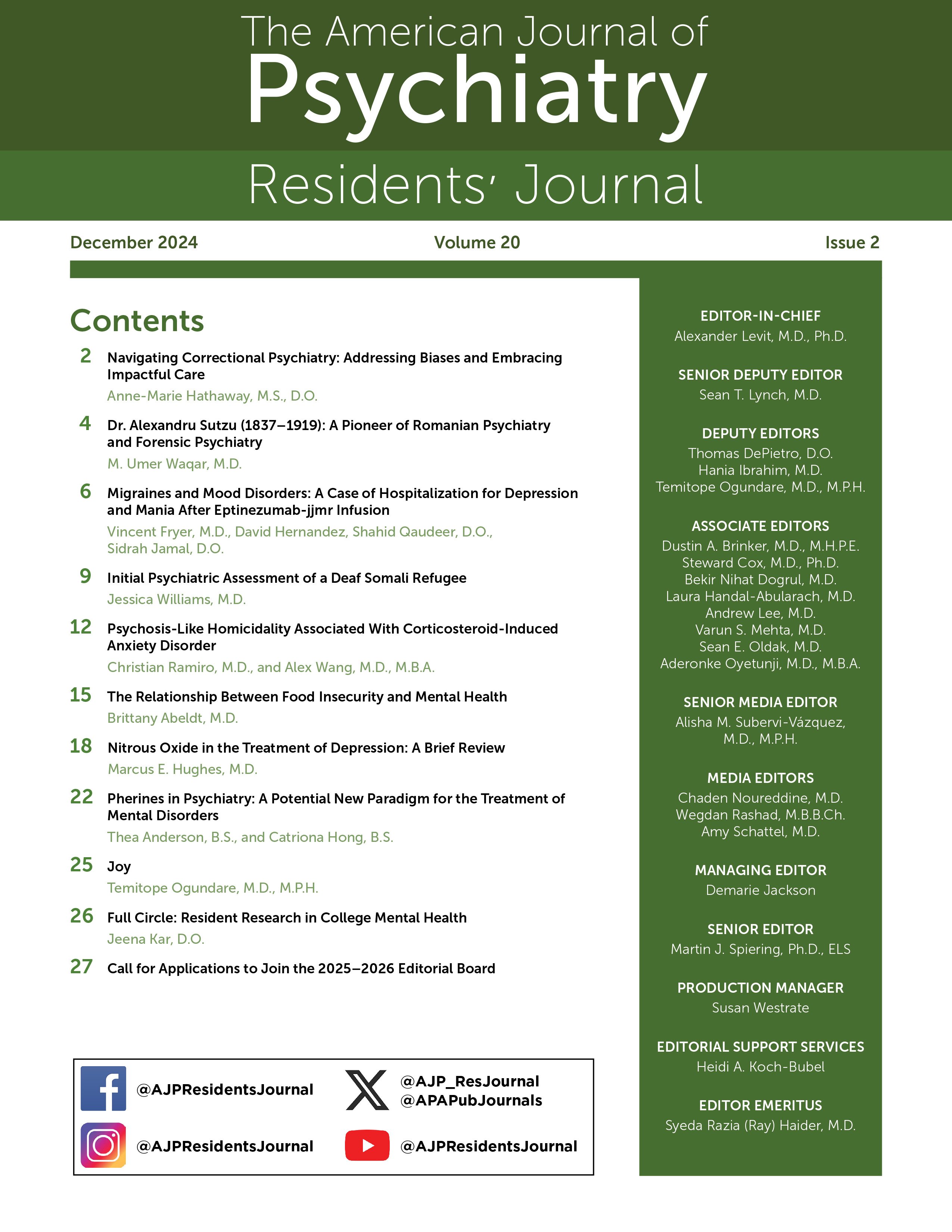Correctional psychiatry stands as a unique and challenging field within the broader spectrum of mental health care. Correctional psychiatry involves providing psychiatric services to incarcerated individuals and addressing their mental health needs within the confines of correctional facilities. Despite its crucial role in promoting rehabilitation and addressing mental illness among incarcerated individuals, correctional psychiatry often faces biases and misconceptions that can deter professionals from entering this essential field. These biases often stem from the belief that incarcerated individuals are inherently dangerous or undeserving of care, which can lead to the perception that providing psychiatric treatment in these settings is futile or morally challenging. A common misconception is that correctional psychiatry focuses on managing violence, rather than on rehabilitation and recovery. These attitudes not only discourage professionals from entering the field but also result in underfunding and limited mental health resources in correctional settings. Addressing these biases and misconceptions is critical for improving mental health outcomes and fostering professional interest in correctional psychiatry (
1).
My medical and residency training gave me the opportunity to observe clinical work in county jails that have psychiatric services. I remember my first encounter vividly: the door opened, and a young man walked in and plopped down on the chair across from us. The patient was thin, with tattoos covering his face and neck, and he looked up nervously at us. As the interview progressed, he opened up about his past childhood trauma, suicide attempts, homelessness, and substance use. He requested to continue his medications and to add “something for anxiety.” After our encounter, he thanked us and politely exited. Each patient who followed had a similar story. The recurring theme of trauma and suicide attempts, the burden and difficulty of addiction, and the all-encompassing effect these challenges had on their psychiatric health was evident. Encounters like this promote a deeper understanding of the critical need for compassionate and specialized care in correctional settings. Early exposure to these settings at a trainee level can spark a lasting interest in providing mental health services to this underserved population.
Within correctional psychiatry, an unspoken stigma may subtly influence how we, as providers, perceive and treat incarcerated individuals. The very environment in which these patients are treated may foster an implicit bias, where the focus shifts from comprehensive care to containment. The knowledge of the crimes these individuals committed or the potential for violent behavior may exacerbate this bias, leading to emotional detachment from or dehumanization of incarcerated individuals (
2). Despite the ethical and clinical challenges, it is our responsibility as psychiatrists to confront this internalized stigma, remain objective, and continue striving to reduce bias in our care of incarcerated individuals. By doing so, we not only uphold the principles of our profession but also contribute to a more humane and rehabilitative correctional system.
Small changes, such as rotations or placing medical students or residents in correctional facilities as part of their clerkships, can help them get exposure to and thereby decrease stigma toward this underserved population. Alternatively, there has been a push for correctional psychiatry to be implemented into residency training curricula (
3). Improving attitudes toward correctional psychiatry involves promoting awareness and education through workshops and continued professional development and recognizing the field’s critical role and successes in correctional settings. Enhancing public perception can be achieved through educational campaigns, partnering with advocacy groups, and sharing success stories to counteract misconceptions. Encouragement of interdisciplinary collaboration and support of evidence-based research can also elevate the field’s status. These strategies can mitigate biases among both professionals and the public (
4). Investing in correctional psychiatry benefits not only incarcerated individuals but also society as a whole, promoting rehabilitation, reducing recidivism, and fostering healthier communities.
